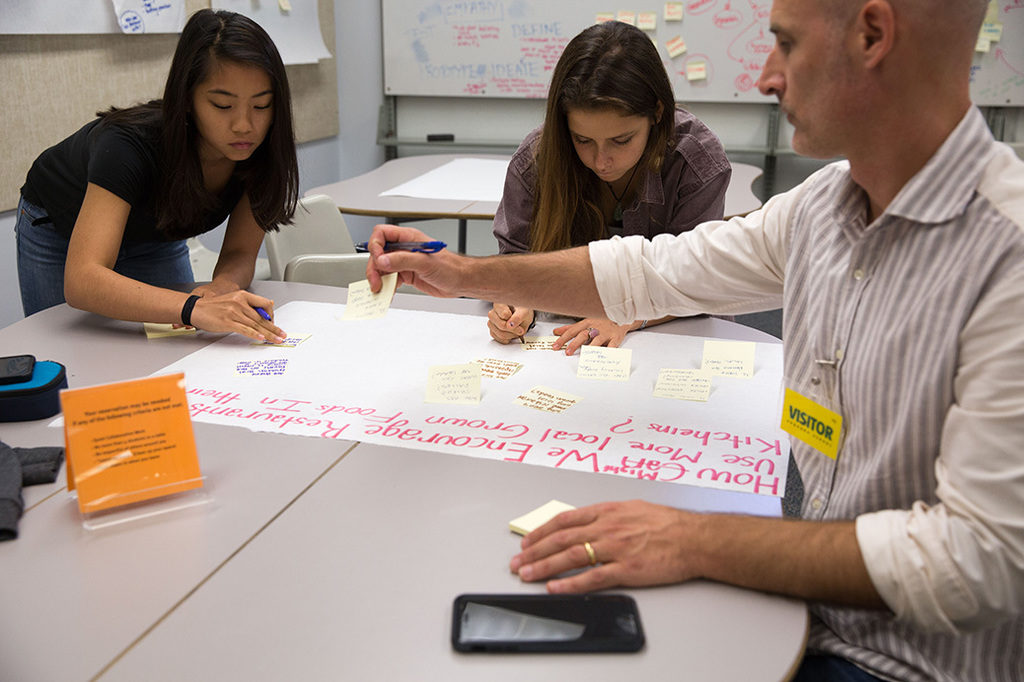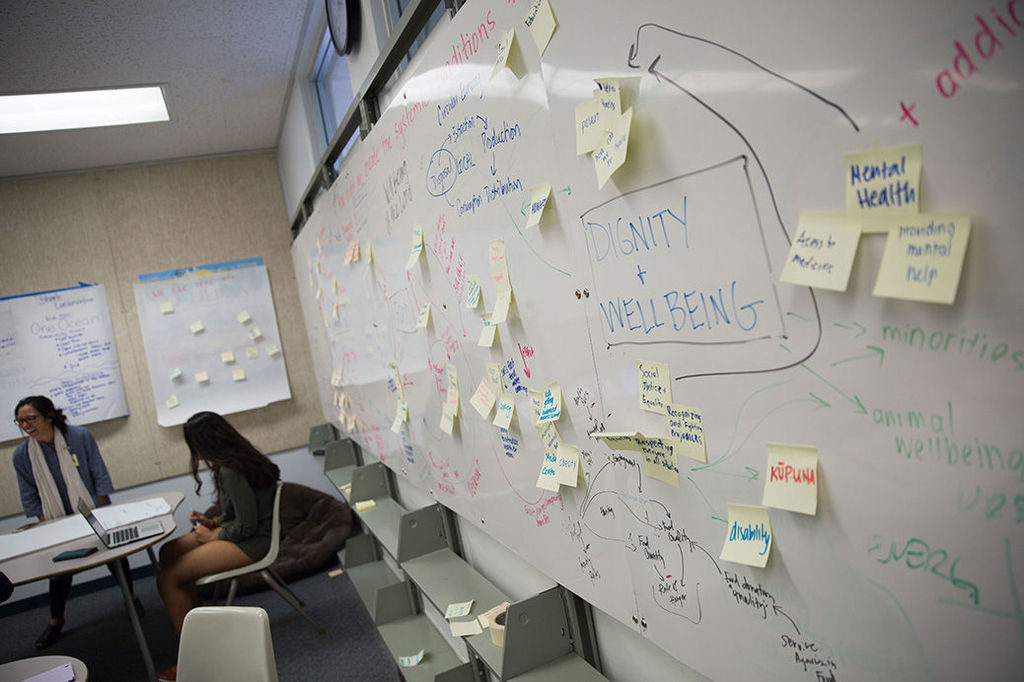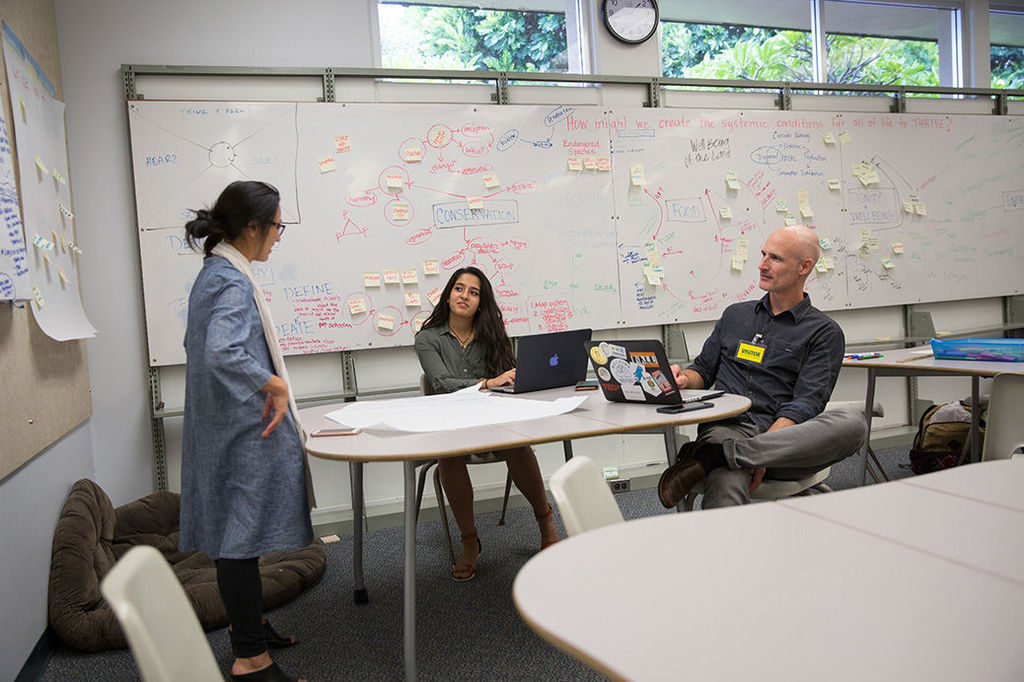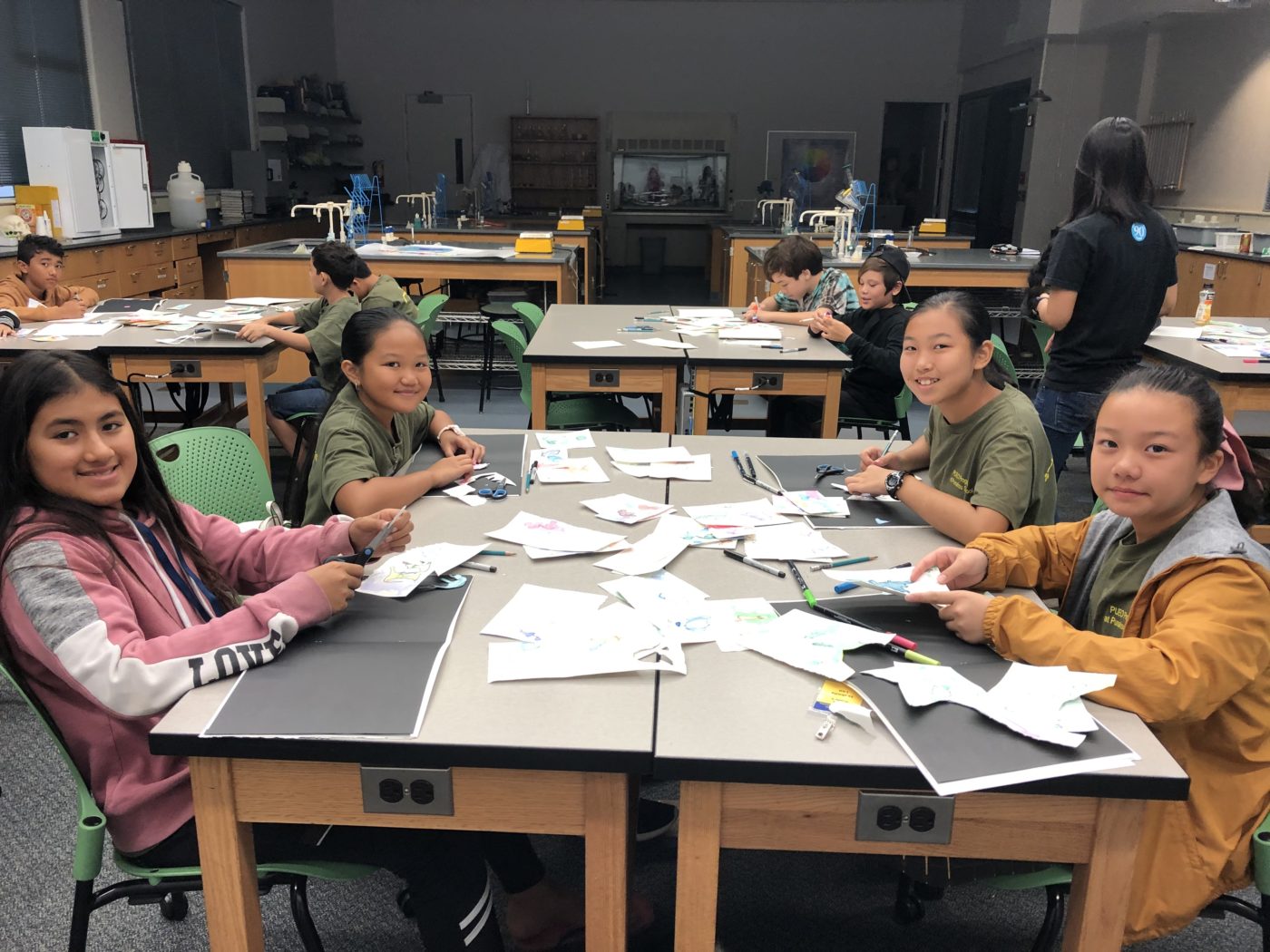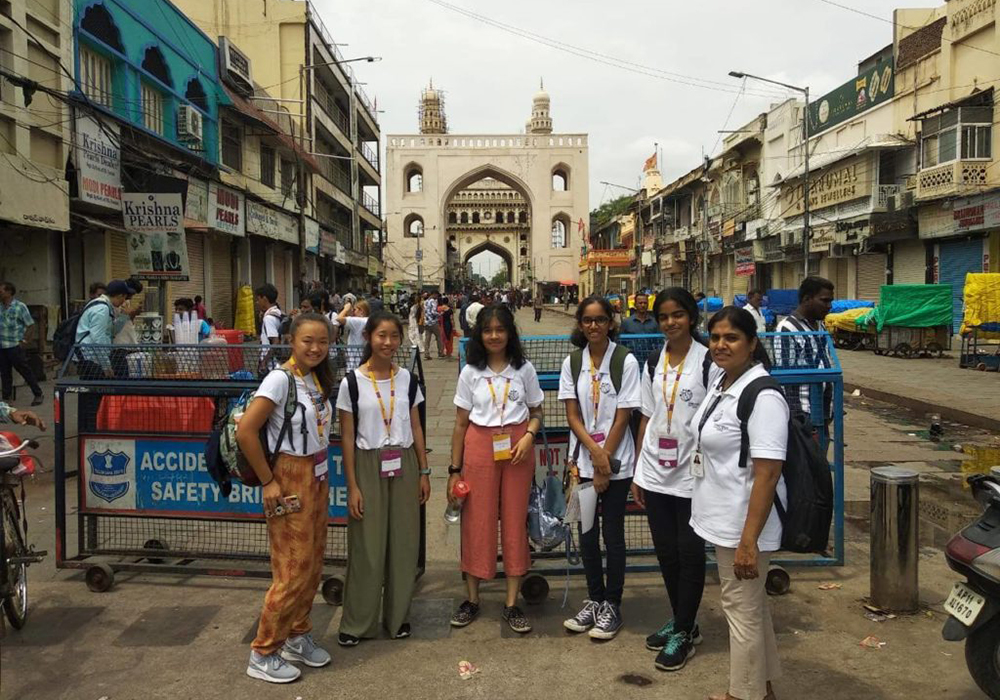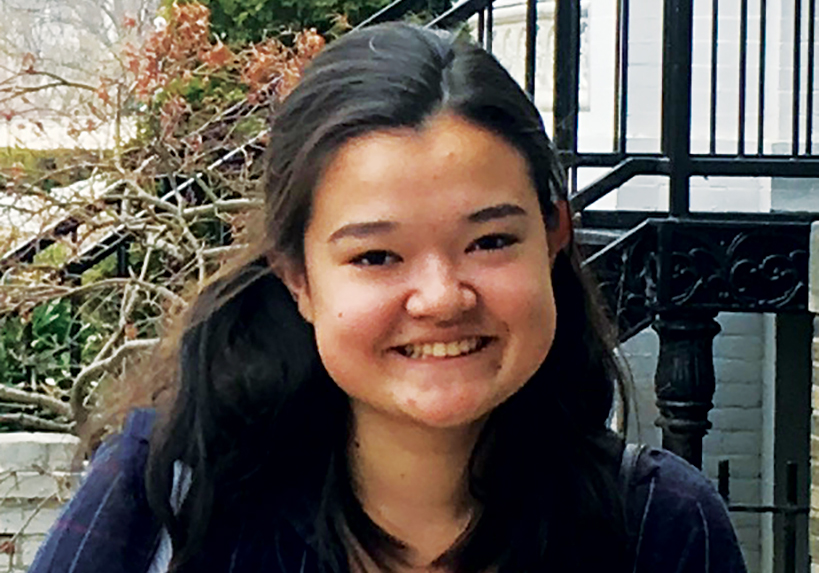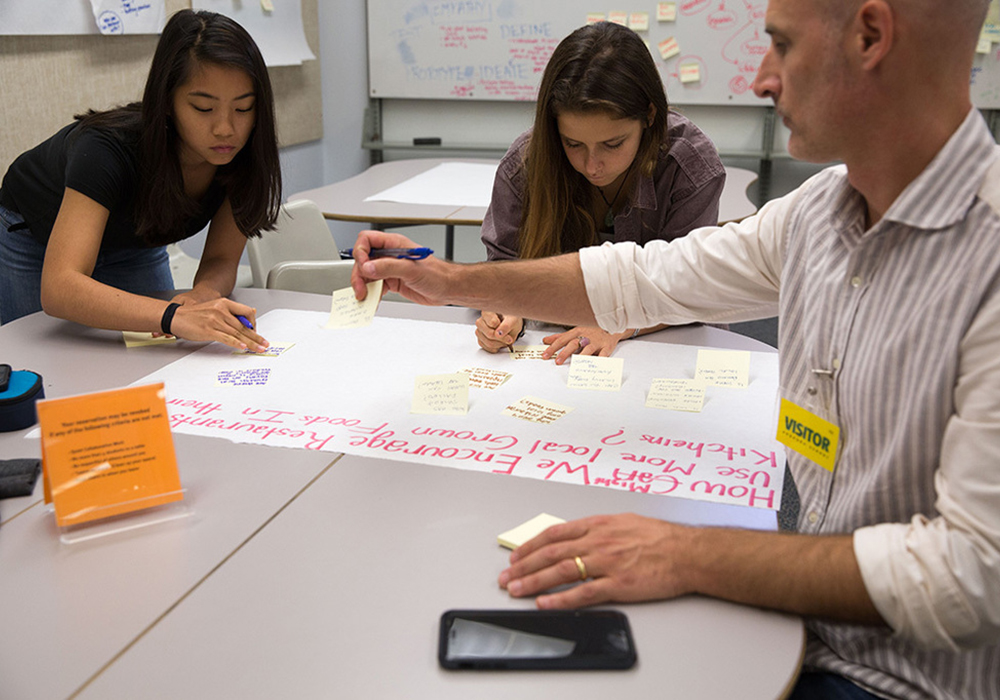
Rachel Breitweser ’03 and Bella Nesti ’20
Luke Center for Public Service recently welcomed guests to share expertise with students and faculty around making change happen in the community, introducing effective methods to dig into messy, complex issues.
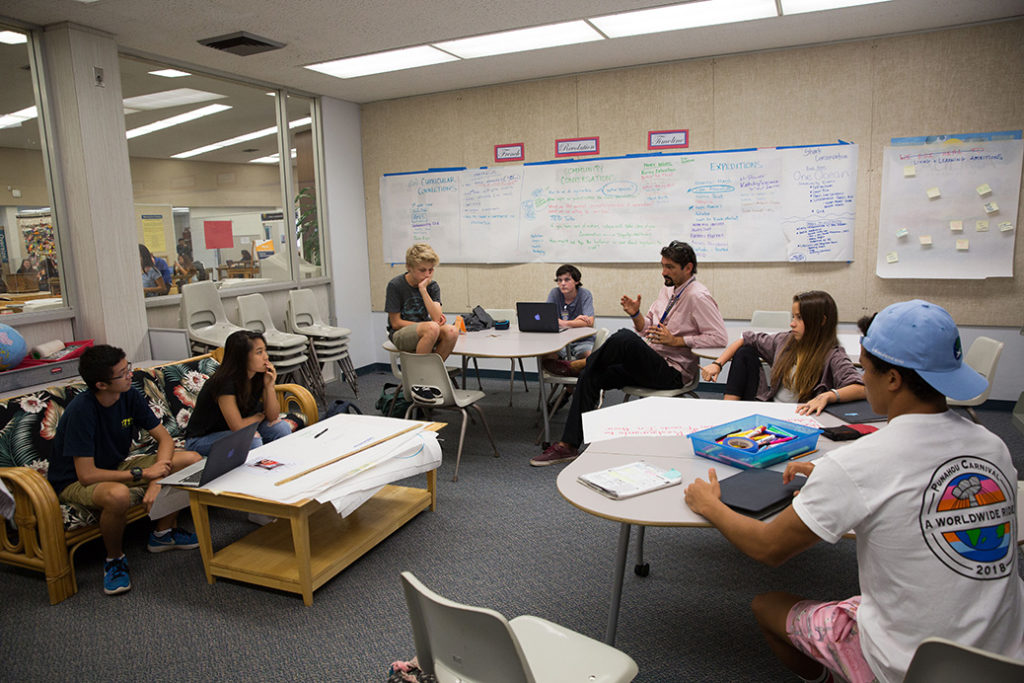
Two international experts on systemic thinking, Zoe Weil and Mike Johnston, shared tools with students and faculty on how to bring about a more sustainable future during workshops and small group discussions. The two educators were visiting Hawai’i as presenters at the Schools of the Future Conference.
Weil is co-founder and president of the Institute for Humane Education and teaches about pressing global challenges. She offers students the tools to focus their passions and learning on developing positive solutions to real-world problems, turning students into what she calls “solutionaries.” Working with Punahou students, she showed examples of what advocates of change are doing in the community and how to identify where their work falls on a “solutionary spectrum.”
Johnston, Head of School at Colegio Maya in Guatemala, introduced students to the concepts embodied in Compass Education, which can be used to link aspects of an issue together to look at the big picture. “We use a compass map as a thinking and orientation frame for sustainability. It translates the complexity of the world into four simple-to-remember directional points (N, E, S, W), which translate into the four key dimensions of sustainability: Nature, Economy, Society and Well-being,” said Johnston. This tool supports students in seeing the complexity of a world issue and how to get to the roots of the challenge.
He showed students a picture of a completed compass made by a group of students, with a flurry of lines linking nature and the environment with economics, politics with education. “And this was created by 10-year-olds!” said Johnston, emphasizing that this tool works on a K – 12 level.
Luke Center also invited Aaron Eden, the co-founder of Eliad Group, to spend one week as “changemaker” in residence. In Cooke Learning Commons, Eden guided students through a systems change framework during an Accelerator Week, which provides time and support for students to explore a subject they are interested in. He introduced the concept of systems thinking, which is a way to address a challenge from a holistic perspective by understanding interconnectedness within a larger system, much like the compass map.
“Systems thinking and systems mapping is a way of visualizing your thinking, which goes beyond a pros and cons list. It captures every stage of a thought process and is a way to counter our biases and find non-obvious solutions,” Eden explained. Siya ’20 continued, “It helps people understand an issue by gaining a broader view and finding areas where they can make the most impact.”
Students with Luke Center, and others who joined in after seeing the work being done inside the classroom, mapped out flowcharts of topics they were passionate about, such as food sustainability in Hawai’i. They listed areas that food sustainability is a part of, such as Hawai’i’s economy, demand, land resources, farmers and more, and asked questions such as “Are there enough farms to support Hawai’i?” and “How can you market local food to create demand?”
After they created the systems maps, Eden inspired students to go deeper in their explorations by helping them see connections among systems and leverage points where change could be made. “At some point you find something concrete enough to move forward,” he said.
The systems thinking method not only helps students find concrete ground within complex topics, but it also welcomes collaborative thinking. Eden, as part of the Eliad Group, meets with other schools, sports teams, families and businesses to do similar work. “My goal is to help organizations align around a co-creative endeavor by tapping into creativity and innovation,” he said.
“I use mind-maps and thought-organization tools often, but systems thinking is new to me,” said Chandra Peters, administrative coordinator of the Luke Center. “Part of the reason why we invited these experts to Punahou was to help define what thinking systemically really means.”
Weil, Johnston and Eden’s teachings have given students an effective framework for tackling complex issues that they are passionate about.
